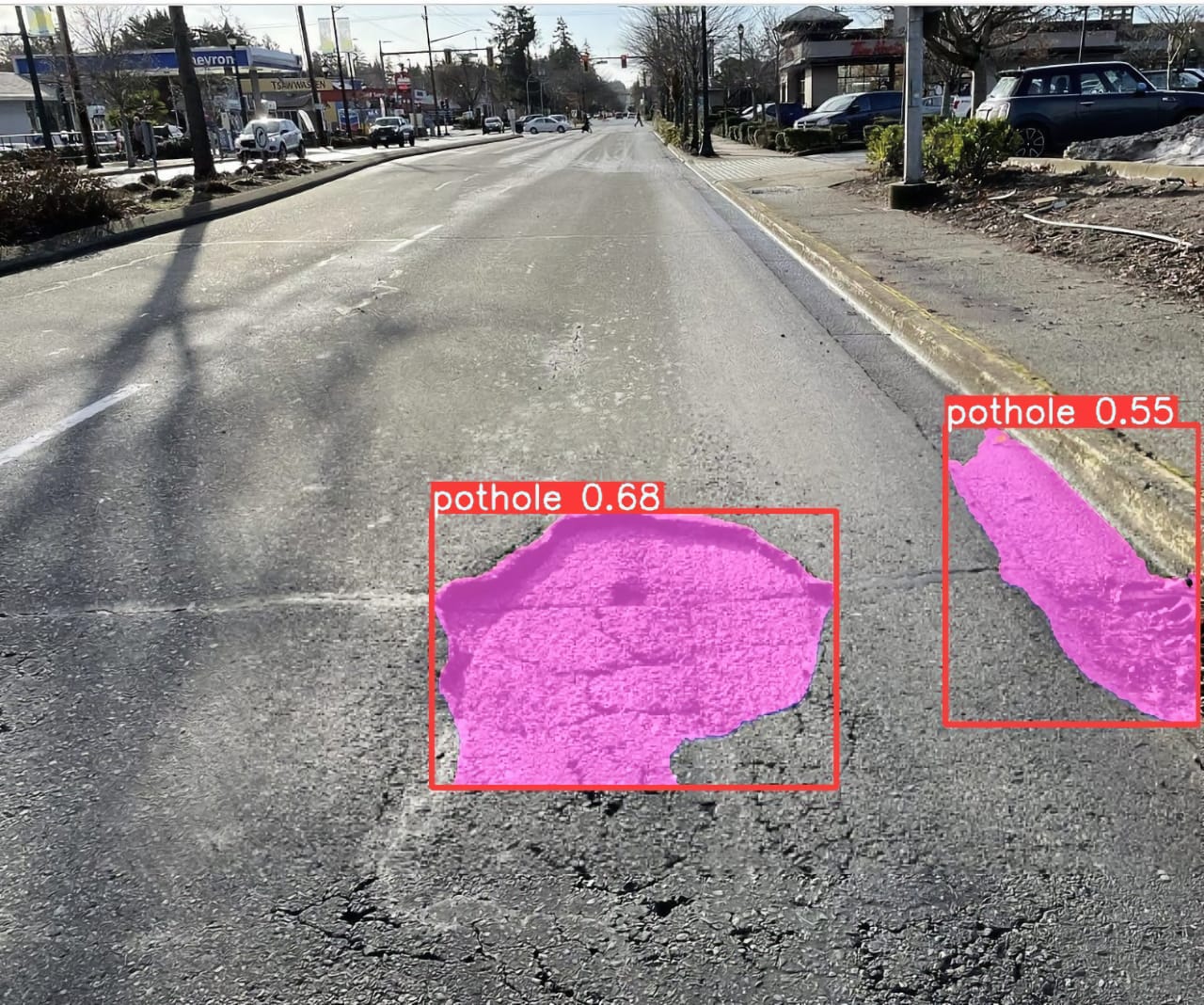The problem of potholes
Potholes cost American drivers an estimated $3 billion annually in vehicle repairs and other expenses. This number does not include the cost of accidents caused by potholes. In a survey by IAM Roadsmart (formerly the Institute of Advanced Motorists), nine out of ten of the 2,000 drivers surveyed said that they were affected by potholes last year. More than half (54%) said they had to swerve or brake sharply to avoid an impact with a pothole.
What is visual pothole detection?
Pothole detection is an essential part of maintaining roads and ensuring safe driving conditions. It is a challenging task that requires accurate detection and monitoring of road conditions in real-time. With advancements in computer vision, the Internet of Things (IoT) and Artificial Intelligence (AI), the video feeds of distributed cameras can be analyzed with deep learning models to inspect road conditions with AI.
Computer vision applications for pothole detection have a wide range of use cases, including road maintenance, smart city, asset management, transportation, and road management systems. The development of automated pothole detection systems has made it possible to detect potholes faster, enabling timely repairs and minimizing the cost of road maintenance.
Features of pothole detection with AI
AI-based pothole detection application involves the use of multiple cameras to capture the road surface. The video stream of cameras is processed using deep learning segmentation or object detection algorithms to find and locate multiple potholes automatically.
- Real-time detection: AI pothole detection applications can identify potholes in real time. When using object detection models such as YOLOv7, the potholes are considered the objects to be detected.
- High accuracy: These systems use a combination of computer vision and deep learning algorithms to accurately detect and classify potholes, reducing false positives and false negatives.
- Multiple camera support: Vision-based pothole detection systems can support multiple cameras, enabling the capture of high-quality images of the road surface from different angles.
- Alerting mechanism: Such systems can be integrated with alerting mechanisms, sending notifications to road maintenance crews, drivers, or fleet managers when potholes are detected.
- Cost-effective: Compared to other methods of pothole detection, such as manual inspections, vision-based pothole detection systems are relatively inexpensive and can cover a larger area in less time, improving efficiency and reducing costs.
- Scalable: A vision-based method is robust and suitable for deploying AI vision across a fleet of vehicles.
The value of automated pothole detection with AI
Video-based number-plate recognition with deep learning is important for a wide range of applications that require vehicle identification to increase safety and security, automation, and productivity.
- Reduced vehicle maintenance costs by detecting potholes early and repairing them promptly to ensure a better-maintained infrastructure offering.
- Increased safety by detecting and reporting potholes in real-time, reducing the risk of accidents and damage to vehicles.
- Improved road maintenance efficiency by enabling timely and efficient measures to repair the roads, minimizing the cost of repairs, and ensuring smoother driving experiences.
- Cost savings by automating manual processes and replacing legacy methods with an inexpensive and powerful AI vision inspection to cover a larger area with a smaller team.
- Data-driven decision making by collecting and analyzing data on pothole locations and severity to optimize resources and save costs.
